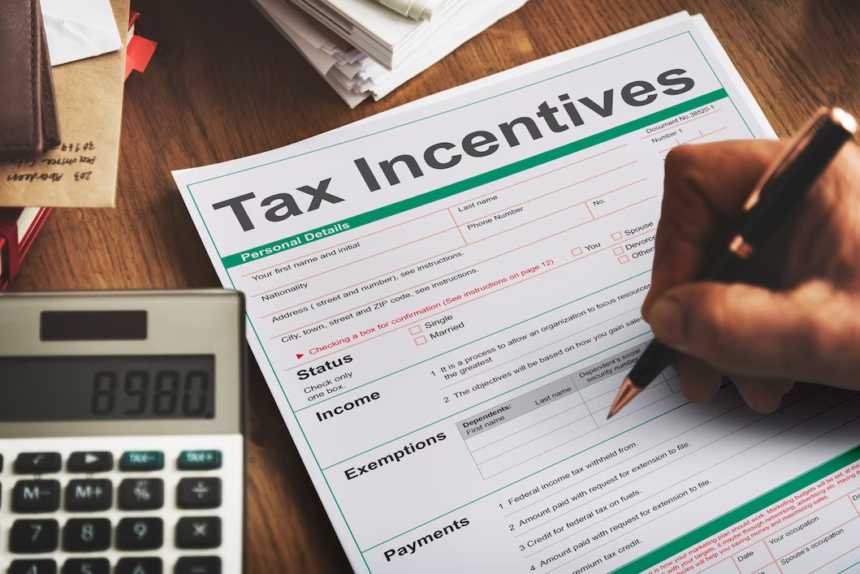Title: Saving on Taxes: Tips for Maximizing Deductions and Credits
Introduction: Tax season can be a daunting time for many individuals, but with some careful planning and knowledge of available deductions and credits, you can significantly reduce your tax liability and save money. The key to maximizing tax savings is to take advantage of every deduction and credit you qualify for. In this article, we will explore essential tips and strategies to help you save on taxes by maximizing deductions and credits.
- Understand Tax Deductions and Credits: To effectively save on taxes, it’s crucial to understand the difference between deductions and credits. Deductions reduce your taxable income, while credits directly reduce the amount of tax you owe. Knowing the deductions and credits available to you is the first step toward maximizing your tax savings.
- Keep Accurate Records and Receipts: Maintaining accurate records and receipts is essential for claiming deductions and credits. Keep track of expenses related to medical bills, education, charitable donations, home improvements, and any other qualifying expenses. Organize your documents and retain them for at least seven years in case of an audit.
- Itemize Deductions: When filing your taxes, consider whether itemizing deductions will be more beneficial than taking the standard deduction. Itemizing allows you to claim specific deductions, such as mortgage interest, property taxes, medical expenses, and charitable contributions. Compare the total of your itemized deductions to the standard deduction to determine the best option for your situation.
- Maximize Retirement Contributions: Contributing to retirement accounts, such as a 401(k) or an Individual Retirement Account (IRA), not only helps secure your future but also offers tax benefits. Contributions to these accounts are typically tax-deductible, meaning they reduce your taxable income and lower your tax liability. Maximize your contributions to take full advantage of these tax benefits.
- Explore Education-Related Deductions and Credits: If you or your dependents are pursuing higher education, there are several tax deductions and credits available. The American Opportunity Credit and the Lifetime Learning Credit can help offset the costs of tuition, fees, and other education-related expenses. Additionally, certain student loan interest payments may be tax-deductible. Consult the IRS guidelines or a tax professional to determine your eligibility and maximize these tax-saving opportunities.
- Don’t Forget Medical Expenses: Medical expenses can add up quickly, and certain qualifying expenses can be deducted from your taxable income. Keep track of medical bills, prescription costs, health insurance premiums, and other eligible medical expenses throughout the year. To claim this deduction, your medical expenses must exceed a certain percentage of your adjusted gross income (AGI), so it’s essential to understand the eligibility criteria.
- Take Advantage of Homeownership Deductions: If you own a home, there are several deductions available to help you save on taxes. Mortgage interest, property taxes, and certain home improvements can be claimed as deductions. Additionally, if you work from home, you may be eligible for a home office deduction. Consult tax guidelines or a tax professional to ensure you’re maximizing your homeowner deductions.
- Explore Credits for Energy Efficiency: Energy-efficient improvements to your home, such as installing solar panels or energy-efficient appliances, may qualify for tax credits. These credits not only reduce your tax liability but also promote environmentally friendly practices. Research federal and state-specific energy efficiency credits to see if you qualify.
- Consider Charitable Donations: Charitable contributions can provide both a sense of fulfillment and tax benefits. Keep records of cash donations, non-cash donations, and volunteer-related expenses. Donations to eligible organizations may be tax-deductible, reducing your taxable income.
- Consult a Tax Professional: Navigating the complexities of tax law can be challenging. Consider consulting a tax professional who can help you identify potential deductions and credits specific to your situation. They can provide personalized advice and ensure you take full advantage of available tax-saving opportunities.
Conclusion: Saving on taxes requires careful planning, record-keeping, and knowledge of available deductions and credits. By understanding the tax benefits associated with homeownership, education, retirement contributions, energy efficiency, and charitable giving, you can significantly reduce your tax liability and save money. Remember to consult the IRS guidelines or a tax professional to ensure you’re maximizing your deductions and credits while remaining compliant with tax laws. With the right strategies and attention to detail, you can effectively save on taxes and keep more money in your pocket.










